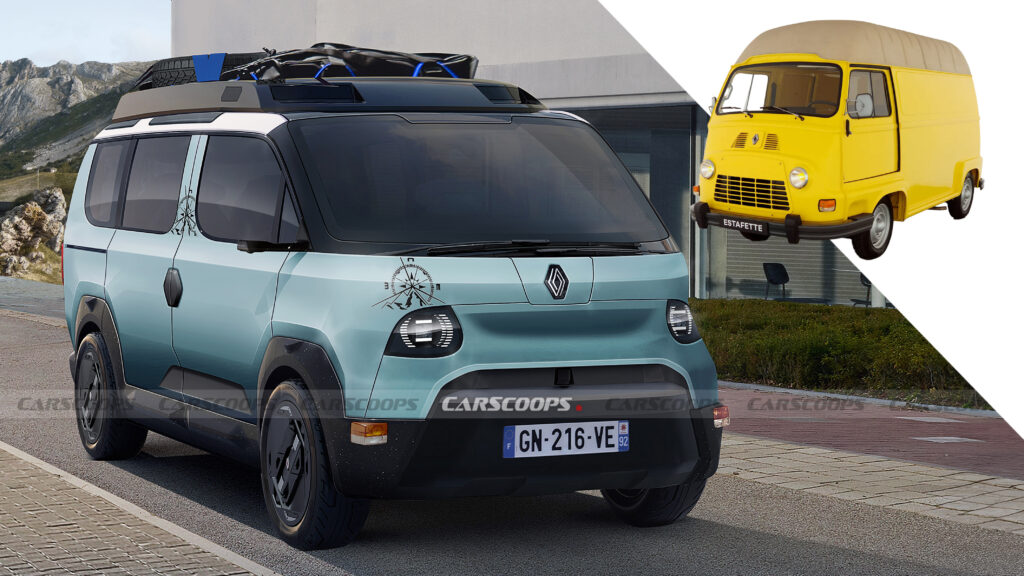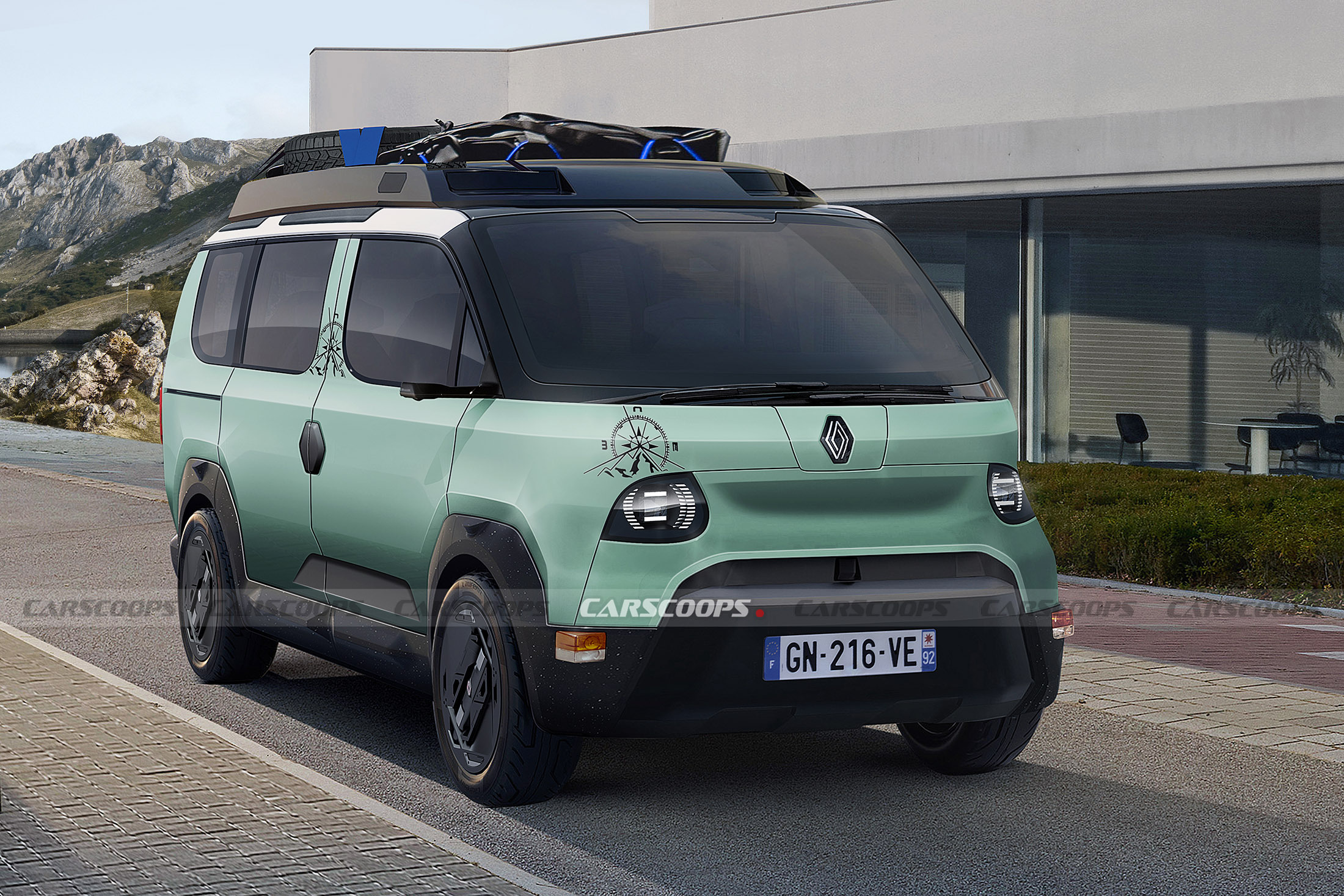- The original Renault Estafette debuted in 1959 and remained in production until 1986.
- It was Renault’s first FWD model and came with a sliding driver’s door.
- A new version is envisioned with nostalgic looks, in line with the new R5, R4, and Twingo EVs.
Remember the Renault Estafette, the light commercial vehicle built from 1959 through 1980 (though it survived until 1986 in Mexico)? Well, perhaps not, but it was a quirky looking van that was as French as a croissant with a side of escargot.
The Renault Estafette was more than just a van—it was a rolling piece of French culture. If you didn’t catch one of these on the roads, you might as well have missed out on a chance encounter with the Eiffel Tower itself.
More: 335 HP VW ID.Buzz GTX Is A Hot Hatch-Chasing Hippie Hauler
It served various roles in the sixties and seventies, including as a police van, offering more practicality than the rivaling Volkswagen Bus of the era. Interestingly, the Estafette briefly graced North American roads under the names Hi-Boy and Petit-Panel, while retaining its original moniker in Canada.
Inspired by the retro-chic design of the R5 E-Tech Electric and the forthcoming R4, our team has created renderings of a modern, fully electric reincarnation of the classic van. This potential EV could serve as a direct competitor to the VW ID. Buzz.
Illustrations Jean Francois Hubert/SB-Medien
Before we dive in, it’s essential to clarify that Renault hasn’t hinted at any development of a new van. The compact Kangoo and midsize Trafic were refreshed in 2020, while the large Master received a new generation in late 2023. However, the idea of an EV-only van with retro-futuristic styling is undeniably intriguing, and the Estafette seems like the perfect inspiration
Our exclusive renderings depict a midsize van with single-box proportions that could be offered in LCV and passenger-friendly versions. The front design pays homage to the iconic “sad face” of the Estafette, updated with modern LED headlights and a sculpted nose. Sustainable materials could be utilized for the generous cladding around the bodywork, aligning with Renault’s eco-friendly strategy while enhancing the van’s adventurous stance
The electric van features sliding doors, futuristic alloy wheels, compass graphics, and a spacious roof rack for storing various equipment. Inside, ample room is provided for passengers and their luggage, thanks to the easily configurable layout facilitated by the flat floor of the electric underpinnings.
While the modern Estafette remains a fictional model, it looks like a great fit for the AmpR Medium architecture, which is the new name of the CMF-EV that underpins the Renault Megane and Scenic E-Tech siblings. Compatible with both single and dual electric motors, the platform enables AWD capability, ideal for an adventurous campervan like the one depicted in the renderings above.
The Source Of Inspiration
Renault Estafette
The original Estafette, introduced in 1959, marked Renault’s first production model with a front-wheel-drive configuration, predating the 4L hatchback. Noteworthy features such as the sliding driver’s door, low floor, and advantageous packaging of the longitudinally-mounted powertrain over the front axle contributed to its popularity among professionals.
More: Everything We Know About The New Renault 4 Electric Crossover
The LCV also proved to be easily adaptable for conversions like campervans, pickups, minibuses, and various other configurations. In total, Renault sold 530,000 units of the Estafatte until 1980, when the van was phased out in Europe in favor of the more modern Trafic. However, local production continued in Mexico for a few more years until 1986.
Could It Return?
As mentioned earlier, Renault’s current LCV range appears to leave little room for another offering. Moreover, the existing vans are already offered in fully electric “E-Tech” variants, catering to the demand for zero-emission mobility within urban areas.
Having said that, we can’t entirely dismiss the possibility of the Estafette making a comeback in electric-only form as the successor to the Trafic, possibly closer to the end of the decade. This timing seems more appropriate for a fully electric campervan, particularly given the delay of the VW ID.Buzz California due to insufficient demand.
Note: This story includes renderings that are not affiliated with nor endorsed by Renault.























